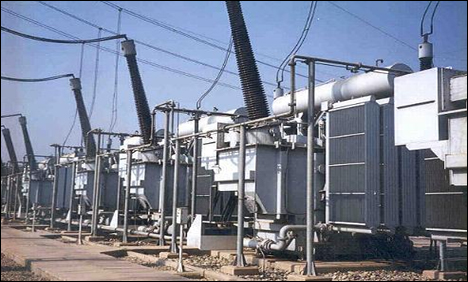Energy theft in the Nigerian Electricity Supply Industry (NESI) remains a major hurdle as the government investigates collusion by some staff, customers and meter manufacturers to bypass meters under some areas covered by the Ibadan Electricity Distribution Company.
This was revealed in a communique issued at the 15th Monthly Meeting of the Power Sector Operators presided over by the Minister of Power Works and Housing, Mr Babatunde Fashola, at the NIPP Injection Substation, Lamingo, Jos at the weekend, The Guardian Nigeria reports.
According to the statement, “Ibadan Electricity Distribution Company noted that the collusion to bypass meters has been reported to the Economic and Financial Crimes Commission (EFCC) and is currently under investigation.”
The document noted a lack of corporate governance displayed by some DisCos as represented in their failure to provide audited accounts, among others.
The disclosure shows that perennial epilepsy in power supply is systemic and could defy official solution unless government succeeds in wiping out corruption from the polity.
Irrespective of the severe shortage of electricity supply, Nigeria still exports about 300 Mega Watts (MW) to Niger and Benin Republic, as part of commitments to boost regional integration in the West African sub-region.
Both countries, The Guardian reports, are indebted to Nigeria by as much as $252 million (N90 billion) — at commercial bank foreign exchange rate of N360 per dollar — for the energy exported.
It was learnt that both countries have only been able to pay $159.773 million (N55 billion), with an outstanding balance of $92.315 million (N33 billion).
In spite of having the national peak demand of 19,100MW, Nigeria’s electricity generation stood at 4,129.60MW as at yesterday, with a deficit of about 14,971WM.
The implication of this is that the country would now have to concede 300MW from the 4,129.60MW to service those bilateral obligations leaving a balance of 3,829.6MW to serve a population of over 180 million people.
However, the Executive Secretary, Lubricant Producers Association of Nigeria (LUBAN), Emeka Obidike, sees it as a way of raising foreign exchange for the country.
According to Obidike, earnings from electricity exports to other countries would assist the country in economic recovering from the recession.
He said: “There are many forces working against regular electricity supply in the country. As we all know, the issue of power is beyond generation and there is nothing wrong with earning foreign exchange from exporting electricity.”
Also, the Managing Partner of Zenera Consulting, Meka Olowola, emphasized the need for the Federal Government to tackle the challenge of transmission.He said: “Nigeria’s electricity challenge is not solely generation. Most of the time, the generation companies complained of not being able to evacuate the electricity generated and therefore resulting in stranded power. There is nothing wrong in exporting power, which the distribution companies are not able to distribute due to poor transmission network.
Most of the time, the generation companies complained of not being able to evacuate the electricity generated and therefore resulting in stranded power. There is nothing wrong in exporting power, which the distribution companies are not able to distribute due to the poor transmission network.
“We are also having the same issue with Liquefied Natural Gas. Nigeria LNG is able to export large quantity of LNG to other countries and yet we complain of lack of gas to power plants due to pipeline vandalisation. The Federal Government should upgrade the country’s transmission network and get experts to manage them. This will enable the country utilise the electricity generated.”
The Executive Secretary of the Association of Power Generation Companies, Dr. Joy Ogaji called on the Transmission Company of Nigeria (TCN) to improve the reliability of the power grid system to avoid incessant blackouts and incidents of deemed capacity (stranded generation).

